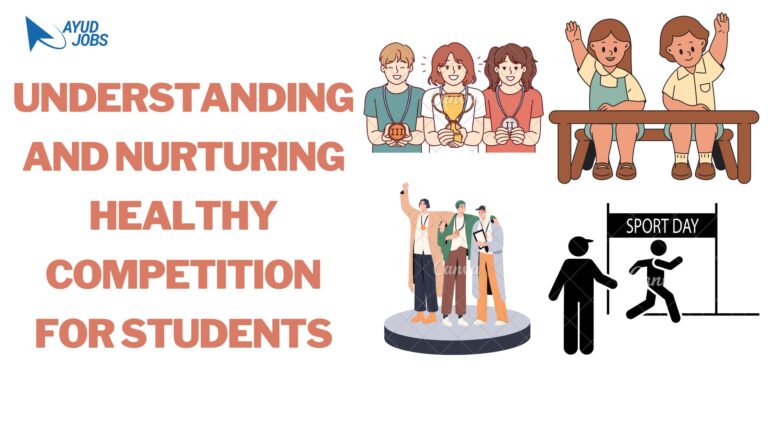Mastering Interpersonal Skills: Building Rapport, Empathy, and Respectful Communication
Mastering Interpersonal Skills: Building Rapport, Empathy, and Respectful Communication
Introduction
In today’s fast-paced world, interpersonal skills are more important than ever. These skills help us build better relationships, both personally and professionally. Three key interpersonal skills are building rapport, empathy, and respectful communication. Mastering Interpersonal Skills: Building Rapport, Empathy, and Respectful Communication. This blog will guide you through these skills, offering practical tips and real-life examples to help you master them.
What Are Interpersonal Skills?
Interpersonal skills are the abilities we use to interact effectively with others. These skills include communication, listening, and empathy. They are essential for creating strong, healthy relationships. In this blog, we will focus on three critical interpersonal skills: building rapport, empathy, and respectful communication.
Building Rapport
Building rapport is the foundation of any good relationship. It involves creating a sense of trust and understanding with another person. When you build rapport, you make others feel comfortable and valued. Here are some tips to help you build rapport:
Be Genuine
People can tell when you are being fake. Be yourself and show genuine interest in others. This helps create a positive connection.
Listen Actively
Active listening means fully concentrating on what the other person is saying. Avoid interrupting and show that you are engaged by nodding or giving verbal feedback.
Find Common Ground
Look for shared interests or experiences. This makes it easier to connect and start a conversation.
Use Positive Body Language
Your body language can say a lot. Smile, make eye contact, and keep an open posture to show that you are approachable.
Story: Building Rapport in Action
Sarah, a new manager at a tech company, wanted to build rapport with her team. She started by scheduling one-on-one meetings with each team member. During these meetings, she listened actively and found common ground by discussing shared hobbies. Her genuine interest helped her build trust and a positive relationship with her team.
Empathy
Empathy is the ability to understand and share the feelings of others. It helps us connect on a deeper level and shows that we care. Here are some ways to practice empathy:
Listen Without Judgment
When someone shares their feelings, listen without judging or interrupting. This shows that you respect their emotions.
Validate Feelings
Acknowledge the other person’s feelings by saying things like, “I understand how you feel.” This makes them feel heard and understood.
Put Yourself in Their Shoes
Try to imagine how the other person is feeling. This helps you understand their perspective and respond more compassionately.
Offer Support
If someone is going through a tough time, offer your support. Sometimes, just being there for someone can make a big difference.
Story: Empathy in Action
John, a college student, noticed his friend Alex seemed down. Instead of ignoring it, John asked Alex how he was feeling. Alex shared that he was stressed about exams. John listened without judgment and offered to help Alex study. This act of empathy strengthened their friendship.
Respectful Communication
Respectful communication is about expressing yourself clearly and kindly. It helps avoid misunderstandings and builds trust. Here are some tips for respectful communication:
Be Clear and Concise
Use simple words and short sentences to get your point across. Avoid using jargon or complex language.
Listen Actively
Just like in building rapport, active listening is crucial. It shows that you value the other person’s input.
Use “I” Statements
When discussing your feelings or opinions, use “I” statements to avoid sounding accusatory. For example, say, “I feel upset when this happens,” instead of, “You always do this.”
Show Respect
Always be polite and respectful, even if you disagree with someone. Avoid interrupting and listen to their point of view.
Practice Patience
Sometimes, conversations can be challenging. Stay patient and give the other person time to express themselves.
Story: Respectful Communication in Action
Emma, a customer service representative, dealt with a frustrated customer. Instead of getting defensive, Emma listened actively and used “I” statements to address the issue. She said, “I understand your frustration, and I’m here to help.” Her respectful communication helped resolve the issue and left the customer satisfied.
Why Interpersonal Skills Matter
Interpersonal skills are vital for success in both personal and professional settings. They help build strong relationships, improve teamwork, and create a positive environment. Here are some reasons why these skills matter:
Better Relationships
Good interpersonal skills help you connect with others and build meaningful relationships. This is important for both personal happiness and professional success.
Effective Teamwork
In a work setting, strong interpersonal skills improve collaboration and teamwork. They help create a positive and productive work environment.
Conflict Resolution
When conflicts arise, interpersonal skills help you navigate and resolve them effectively. This leads to better outcomes and less stress.
Increased Empathy
Practicing empathy helps you understand others better. This creates a more compassionate and supportive environment.
How to Improve Your Interpersonal Skills
Improving your interpersonal skills takes time and practice. Here are some steps to help you get started:
Practice Active Listening
Make a conscious effort to listen actively in your conversations. This will help you understand others better and build stronger connections.
Seek Feedback
Ask for feedback from friends, family, or colleagues. This can help you identify areas for improvement and track your progress.
Reflect on Your Interactions
After conversations, take some time to reflect on how they went. Think about what you did well and what you can improve.
Take Communication Courses
Consider taking courses or workshops on communication and interpersonal skills. These can provide valuable insights and techniques.
Be Mindful
Stay present in your interactions and be mindful of your words and actions. This helps you communicate more effectively and build better relationships.
Conclusion
Interpersonal skills are essential for building strong, healthy relationships. By focusing on building rapport, empathy, and respectful communication, you can improve your interactions with others. Mastering Interpersonal Skills: Building Rapport, Empathy, and Respectful Communication. Remember, these skills take time and practice, but the effort is worth it. Start incorporating these tips into your daily life and watch your relationships flourish.
#InterpersonalSkills #BuildingRapport #Empathy #RespectfulCommunication #RelationshipBuilding #CommunicationSkills #ActiveListening #PersonalDevelopment #ProfessionalGrowth #gotestit #ayud #ayudian #ayudjobs #askayud #MultiLanguageSupport #ResumeBuilder
Join our what’s app channel for timely updates
Click here to install Ayud Jobs App from Playstore

GoTestIt – Soft Skills / Building Rapport
GoTestIt – Soft Skills / Interpersonal Skills Empathy
GoTestIt – Soft Skills / Respectful Communication
Mastering Knowledge with GoTestIt: The Ultimate Self Evaluation Tool







